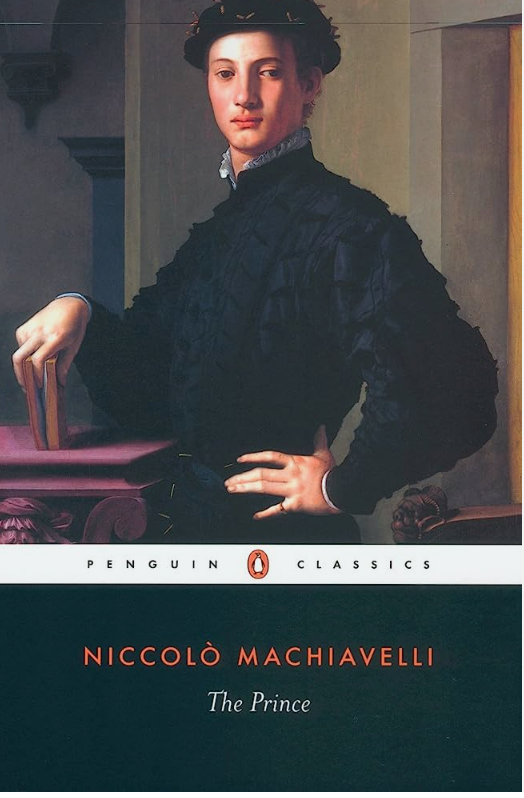

Stephanie
Book Review: The Prince by Machiavelli
Quite a while ago, I bought "The Prince" on a whim while shopping with a friend. We were hanging out at a bookstore, waiting for some other friends to arrive, when I spotted the book.
I had heard of it before, of course, and its popularity and reputation piqued my interest. So I bought the book. I went into the book fully expecting it to not be able to live up to its reputation of a ruthless political strategy book, and I mean...
It was good. I mean, of course it was good, and of course it wasn't some magical strategy book where once you read it you would know how to do everything perfectly. It's both vague and specific in its advice, giving general warnings of "don't make enemies" but also referencing specific popes and kings of its time. And it's definitely clear how much the book is influenced by its time. The language is a bit hard to parse (untranslated Latin and uncommon words like "ecclesiastical" are scattered around), and there are countless references to people and events that would've been well-known at the time but now are just people and places most people wouldn't know. The book helps, of course, with the version I received giving footnotes for clarification and a timeline to preface the book.
I really like the breadth of questions the book addresses. The first sections are about principalities and how to hold them (not too relevant today, I'm guessing), including not changing laws or taxes, and not doing wrong to a large group of people (Machiavelli suggests to either pamper or crush people). He echoes the latter sentiment quite a lot later in many regards. Interestingly, he touches upon the topic of princes chosen by the people, and those chosen by the nobles, concluding that princes chosen by the people are better-off in maintaining their position, as the people are many and the nobles are few, and the nobles are more ambitious in seeking power than the people - he generalizes that the people are easier to satisfy than the nobles, as the people only want to not be oppressed and the nobles want to oppress.
Machiavelli also heavily emphasizes the importance of military organization, and he considers it one of the most important aspects of maintaining a principality. In particular, he emphasizes the importance of native troops and advises against using auxiliaries and mercenaries ("cowardice is the danger with mercenaries, and valour with auxiliaries" (p. 45)).
He also mentions the importance of appearing to have, and having a reputation for "princely qualities" (generous, helpful, compassionate, courageous, stubborn, flexible, etc.) but warns that actually having all those qualities will lead one to ruin. Accordingly, he stresses the need to not be hated, as once a principality has the means to defend against outside forces, the major threat is from revolutions within. Finally he address fortune, stating that fortune favors different qualities of princes at different times (circumspect, impetuous, patient, bold, etc.), but just as one can construct embankments and dams to control the flow of a river, one can change to keep fortune and their character/policy in accord. He concludes that generally, it's better to be more impetuous than circumspect.
Anyways, it was a pretty good read overall. It's pretty short, so if you haven't read it yet, I'd urge you to!